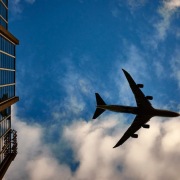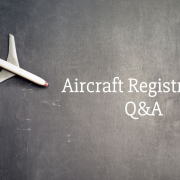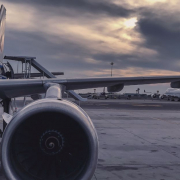Recent court practice on denied boardings
On 26 October 2023, the European Court of Justice (ECJ) issued a new ruling on the interpretation of Articles 4 and 5 of Regulation 261/2004 in connection with denied boardings (case C-238/22).
In this ruling, the ECJ determined that an air carrier that informs a passenger in advance that, against the passenger´s will, they will be denied boarding for a flight with a confirmed reservation, must compensate that passenger, even if the passenger does not present themselves for boarding.
In the case at hand, the air carrier denied transporting the passenger on the inbound flight because they had not taken the outbound flight, a common practice based on so-called “No-Show Clauses”.[1] The ECJ interpreted this application of a No-Show-Clause as a denied boarding, disregarding the interpretative guidelines on Regulation 261/2004 published by the EU Commission on 10 June 2016.
Furthermore, the ECJ ruled that Article 5(1)(c)(i) of Regulation 261/2004 does not apply to cases in which passengers are denied boarding. Therefore, the air carrier must provide compensation payments (Article 7) to passengers, even if they informed the passengers at least two weeks in advance that they will refuse to carry them.
On 11 July 2023, the Austrian Regional Court Korneuburg faced a case (22 R 120/23m) with the following circumstances:
An air carrier was confronted with a shortage of security staff at its homebase (LHR) in the aftermath of the COVID-19 pandemic, resulting in difficulties in handling a sudden increase in passenger numbers during the travel boom following the end of COVID-related travel restrictions. As a response, the air carrier decided to “cancel” several flights due to the challenges in performing the required security checks on the passengers.
The “canceled” flights were, in fact, performed by the air carrier, using the planned time slots, flight numbers and destinations, but with cargo only – without passengers on board.
The Regional Court Korneuburg, serving as the court of appeal, determined that such cases do not constitute a cancellation within the meaning of Article 5 of Regulation 261/2004 but rather constitute denied boardings within the meaning of Article 4.
Additionally, the court emphasized that, in cases of denied boardings, it is irrelevant if the reasons for such denied boardings could constitute extraordinary circumstances within the meaning of Article 5. According to the applicable Article 4, air carriers are always obligated to immediately compensate passengers in accordance with Article 7 if they are denied boarding against their will.
According to Article 2(j) “denied boarding” means a refusal to carry passengers on a flight, except where there are reasonable grounds to deny them boarding, such as reasons of health, safety or security, or inadequate travel documentation. The court concluded (citing ECJ case C‑321/11, 32) that a reason for a denied boarding must be attributable to the passenger who is being denied boarding.
Since the reason for the air carrier´s decision not to transport passengers on the flight in question was not in any way attributable to the passenger, there were no reasonable grounds within the meaning of Article 2(j) for the denied boarding. Consequently, the Regional Court Korneuburg ruled in the passenger´s favor and ordered the air carrier to pay compensation to the passenger.
Don´t hesitate to contact our Aviation Team to learn more about passenger claims in Austria.










